In the rich tapestry of our spiritual lives, few topics provoke deeper reflection than denominational loyalty. This concept, which organizes the Christian faith into myriad factions, invites us to examine whether our human constructs align with divine intent. As a scholar of the Hebrew Scriptures and a believer in Yeshua, I see an opportunity to explore this question through the lens of Scripture, Jewish tradition, and the unifying fulfillment found in the Messiah. This post seeks to clarify how denominational divisions, when viewed against the backdrop of biblical unity, point us toward Yeshua as the culmination of God’s redemptive plan.
Understanding Denominations: A Human Framework
The term “denomination” refers to groupings within Christianity based on shared beliefs, practices, or historical traditions. Estimates suggest over 33,000 denominations exist globally, a figure that underscores the complexity of Christian identity.[^1] While these labels—Baptist, Methodist, Orthodox, and others—offer structure and community, they also raise a critical question: do they reflect the unity God desires for His people, or do they fragment the body of Christ?
In Jewish tradition, unity among God’s people is a recurring theme. The Shema (Deuteronomy 6:4) declares, “Hear, O Israel: The Lord our God, the Lord is one,” emphasizing not only God’s oneness but also the call for His people to be united in purpose.[^2] This principle resonates in the New Testament, where Yeshua prays for His followers to be “one, as we are one” (John 17:22). Denominationalism, however, often prioritizes theological distinctives over this shared identity, prompting us to reconsider its place in light of Scripture.
Scriptural Insight: Unity Over Division
The Hebrew Scriptures lay a foundation for unity that finds its fulfillment in Yeshua. In Isaiah 11:1-3, the prophet foretells a “shoot from the stump of Jesse” who will bring justice and peace, uniting God’s people under His reign. This Messianic vision transcends tribal or factional divides, pointing to a singular leader whose authority unifies. Yeshua fulfills this prophecy, as seen in His teachings and the establishment of the Church as a new covenant community (Matthew 16:18).
The Apostle Paul addresses division directly in 1 Corinthians 3:4-7, where he rebukes the Corinthians for their factionalism: “For when one says, ‘I follow Paul,’ and another, ‘I follow Apollos,’ are you not being merely human?” Paul’s rhetorical question cuts to the heart of denominational loyalty. By aligning with human leaders or theological camps, we risk elevating human constructs above God’s unifying work. Paul concludes, “Neither he who plants nor he who waters is anything, but only God who gives the growth.” This principle challenges us to see denominations not as ultimate authorities but as temporary frameworks that must yield to Christ’s lordship.
In Jewish hermeneutics, the principle of peshat (the plain meaning of the text) guides interpretation.[^3] Applying peshat to Paul’s words, we see a clear call to prioritize Christ over human leaders. Yet, Jewish tradition also employs drash (interpretive application), which allows us to extend Paul’s critique to modern denominationalism. Just as the Corinthians’ divisions obscured their shared faith, our denominational labels can distract from the Messiah who unites us.
The Challenge of Denominational Loyalty
Denominational loyalty often stems from a desire for belonging, yet it can echo the warning in 2 Timothy 4:3: “For the time is coming when people will not endure sound teaching, but having itching ears they will accumulate for themselves teachers to suit their own passions.” This verse, rooted in the Jewish concept of seeking truth over comfort (Proverbs 3:5-6), suggests that our preference for certain denominations may reflect a human tendency to gravitate toward familiar or affirming teachings rather than the full counsel of Scripture.
Consider the prophecy of Micah 5:2, which foretells the Messiah’s birth in Bethlehem: “From you shall come forth for me one who is to be ruler in Israel, whose coming forth is from of old, from ancient days.” This promise, fulfilled in Yeshua (Matthew 2:1), points to a singular Savior who transcends human categories. Denominationalism, by contrast, can fragment this vision, creating enclaves that emphasize secondary doctrines over the primary truth of Christ’s redemptive work.
A Jewish perspective illuminates this further. The Talmud (Sanhedrin 98a) describes the Messiah as one who will restore Israel and gather the exiles, a role Yeshua fulfills by uniting Jew and Gentile into “one new man” (Ephesians 2:15).[^4] Denominational divisions, however, can obscure this reality, fostering separation rather than the reconciliation Yeshua embodies.
Anticipating Objections: The Value of Denominations
Some may argue that denominations serve a practical purpose, fostering theological clarity and community. Indeed, denominations have historically preserved distinctives, such as the Baptist emphasis on believer’s baptism or the Pentecostal focus on the Spirit’s gifts. These contributions enrich the Church, much like the diverse tribes of Israel each brought unique strengths to the covenant community.
Yet, Scripture subordinates these distinctions to a higher unity. In Galatians 3:28, Paul declares, “There is neither Jew nor Greek, slave nor free, male nor female, for you are all one in Christ Jesus.” This radical unity does not erase diversity but reorients it under Christ’s headship. Denominations, when treated as ultimate, risk undermining this vision, creating barriers where Yeshua builds bridges.
Another objection might be that abandoning denominational loyalty leads to doctrinal chaos. However, the solution lies not in clinging to human systems but in grounding ourselves in Scripture, as the Bereans did (Acts 17:11). By testing all teachings against God’s Word, we maintain fidelity to truth without elevating denominational labels above Christ.
Yeshua: The Fulfillment of Scripture’s Unity
The Hebrew Scriptures consistently point to a Messiah who unifies God’s people. Psalm 2:6-8 proclaims God’s anointed King, who will inherit the nations, a prophecy fulfilled in Yeshua’s universal lordship (Revelation 11:15). Similarly, Jeremiah 31:31-34 promises a new covenant, which Yeshua inaugurates through His sacrificial death (Hebrews 8:6-13). These texts reveal a divine plan that transcends human divisions, culminating in the Messiah who reconciles all things to God (Colossians 1:20).
Yeshua Himself models this unity. In John 10:16, He declares, “I have other sheep that are not of this fold. I must bring them also, and they will listen to my voice. So there will be one flock, one shepherd.” This vision, rooted in Ezekiel 34:23, underscores Yeshua’s role as the singular Shepherd who gathers diverse peoples into one body. Denominationalism, while offering temporary structure, must ultimately bow to this reality.
A Call to Reflect and Act
As we navigate the complexities of denominational loyalty, let us return to the heart of Scripture. The Hebrew Scriptures and the New Testament converge in Yeshua, the promised Messiah who fulfills God’s plan for unity and redemption. Rather than clinging to human labels, let us rebuild our faith on the foundation of Christ’s teachings, embracing a primal Christianity that transcends boundaries and reflects His love.
This reflection is both intellectual and spiritual. It invites us to examine our affiliations with humility, asking whether they draw us closer to God and one another. It challenges us to study Scripture diligently, seeking the Messiah who illuminates every page. Above all, it calls us to consider Yeshua—not as a figure confined to one denomination, but as the Savior who unites all who trust in Him.
I invite you to explore the Scriptures for yourself. Read Isaiah 53, which portrays the Suffering Servant, and compare it to Yeshua’s life in the Gospels. Study Psalm 22 alongside the crucifixion accounts. Reflect on how these ancient texts find their fulfillment in the One who said, “I am the way, and the truth, and the life” (John 14:6). Let these truths stir your heart and mind, leading you to a deeper encounter with the Messiah.
Share your thoughts below: How have denominational labels shaped your faith? What does it mean to you to follow Yeshua as the fulfillment of Scripture? Together, let us pursue a faith that is scripturally sound, intellectually robust, and filled with the grace of our Savior.
[^1]: Barrett, David B., et al. World Christian Encyclopedia. Oxford University Press, 2001. [^2]: Maimonides, Mishneh Torah, Laws of the Foundations of the Torah 1:1, emphasizes the Shema as a call to unity in faith and practice. [^3]: Rashi, Commentary on the Torah, Genesis 3:8, explains peshat as the straightforward interpretation, foundational to Jewish exegesis. [^4]: Babylonian Talmud, Sanhedrin 98a, discusses the Messiah’s role in gathering and redeeming Israel, a theme fulfilled in Yeshua’s ministry.
SUBSCRIBE FOR WEEKLY LIFE LESSONS
Lorem ipsum dolor sit amet, metus at rhoncus dapibus, habitasse vitae cubilia odio sed.
We hate SPAM. We will never sell your information, for any reason.

